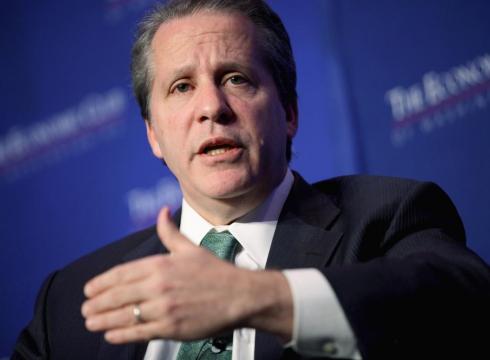 Gene SperlingPIMCO
has appointed former White House advisor Gene Sperling as a consultant on US
economic policy issues as the firm continues to rebuild after Bill Gross’ exit.
Gene SperlingPIMCO
has appointed former White House advisor Gene Sperling as a consultant on US
economic policy issues as the firm continues to rebuild after Bill Gross’ exit.
Sperling, who served as principal economic advisor to two US presidents, will support the firm’s investment committee and work with the portfolio management group, PIMCO said. He will also participate in economic forums on cyclical and secular outlooks and communicate with clients.
Group CIO Daniel Ivascyn said Sperling’s insight and experience would be invaluable to PIMCO’s investment process as “US policy issues have had significant influence on financial markets since the global financial crisis in 2008.”
Sperling was the director of the National Economic Council assisting Presidents Bill Clinton and Barack Obama. He also founded and served as director of the Center for Universal Education at the Council on Foreign Relations and Brookings Institution prior to joining the Obama Administration.
The 56-year-old was also senior fellow for economic policy at the Center for American Progress. Sperling is currently president of Sperling Economic Strategies.
PIMCO’s newest hire received a BA from the University of Minnesota and a doctorate from Yale Law School. He also attended the Wharton School of the University of Pennsylvania.
The Newport Beach, California-based firm has been on a hiring spree since the very public and antagonistic breakup with Gross.
In an effort to rebuild and reassure clients, the firm rehired Michael Spence—a Nobel Prize winner—as a consultant on macroeconomic and global policy issues in October 2014. Jeremie Banet also returned to the group after just four months to serve as executive vice president and a portfolio manager on real return strategies.
Gross recently admitted to Bloomberg contributor Barry Ritholtz he was fired from the firm he founded in 1971 after he offered to scale down his responsibilities to manage smaller, closed-end funds.
“For some reason still unbeknownst to me, they didn’t think that was a good idea and they did fire me,” Gross told Bloomberg.
According to Morningstar, investors pulled $150.2 billion from PIMCO’s funds in 2014, of which $102.9 billion was from its flagship Total Return Fund.
Related Content: Fade to Black, PIMCO Rehires Two Staff as Post-Gross Rebuild Continues
